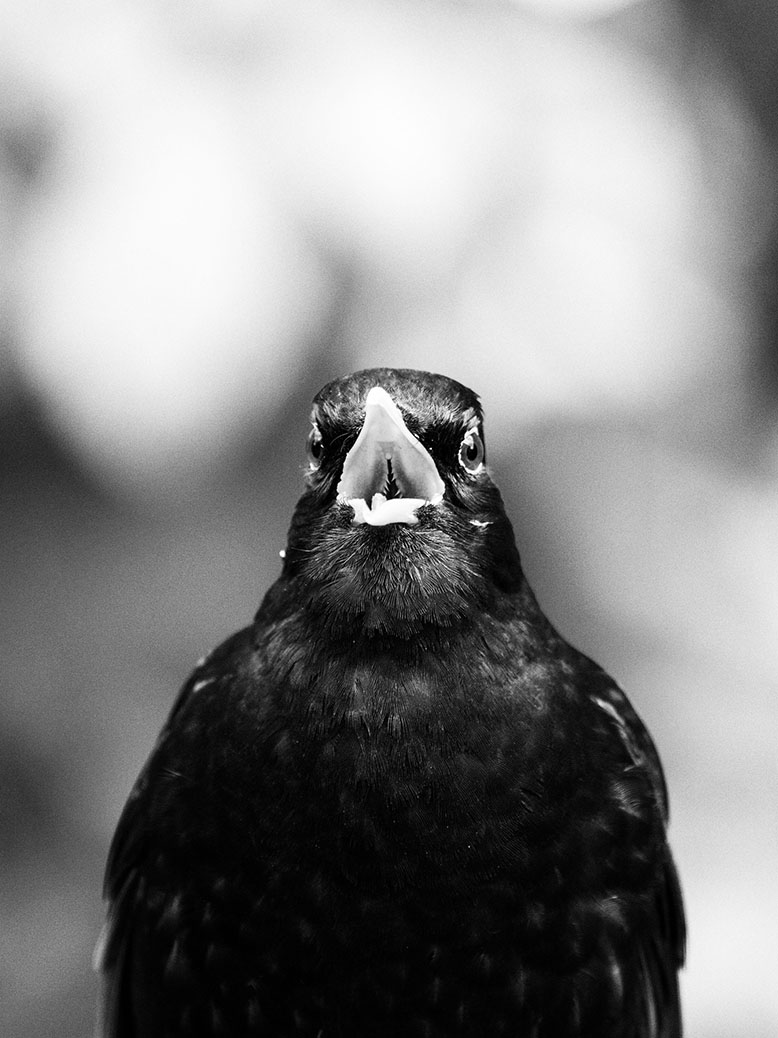It’s early March. Forty-five minutes before dawn, a red-legged partridge in the field behind my house begins to call. The coughing, ticking roll of notes like a stuttering diesel engine drifts through my open bedroom window and wakes me just enough for me to blink at my bedside clock and to recognise the sound as spring.
As the Northern Hemisphere moves closer to the sun, our days are increasingly filled with birdsong. Although some sing during winter (my local mistle thrush spent all January sending out curt, curlicued phrases through sleet and rain and fog) the lengthening days and rising temperatures fuel hormonal changes in other birds, spurring them to take voice. Spring and summer birdsong peaks at daybreak and then again at dusk, but the dawn chorus possesses the most intensity, richness and volume. This celebrated phenomenon peaks in late April and early May before dying away as birds turn their attentions to provisioning hungry young.
Participants in the dawn chorus sing for two reasons: first to stake their claim on hard-won territory, warning off incursions by rival males. And second to demonstrate their fitness as mates. The better their physical condition, the better they sing; each male has a signature song full of slight, personal variations that identifies them both to females and the nearest territorial males.
The dawn chorus is far from an undifferentiated mess of avian voices: it has a definite order. Different species join in at different times, allowing them to avoid interference with the songs of other birds. Their cue to begin is a particular intensity of light. On moonlit nights, songs start early; on cloudy mornings, they can be delayed. This correlation between time, light and music is a beautiful thing: as the world turns, a long ribbon of song breaks out at the edge of darkness across the Northern Hemisphere, moving westward and growing louder, before dying away at exactly the same rate as the oncoming day.
Like the partridge that woke me, larks are among the first to sing. Skylarks rise from the earth before there’s a trace of light in the sky, and their bubbling descant at this hour is quietly thrilling. Robins begin with the first suspicion of light in the east; blackbirds too. More birds join the chorus as the day grows lighter: thrushes, wood pigeons, warblers, finches and tits, until the air is vaulted with a polyphony of feathered voices.
Along with the calls of returning swifts, the first blackbird song is, for me, among the most powerful harbingers of spring. I vividly recall so many of these hearings. Twenty years ago it was a blackbird in Portobello Road, sending out rich phrases that echoed between walls of stucco and window glass. Even longer ago, it was a song buffeted by a gusty wind performed by a bird atop a hawthorn at the edge of a sheepfold in Wales. Every spring year that first blackbird feels more poignant, its notes pregnant with nostalgia for previous springs and provoking a sense of relief that the world still turns and I’m still here to hear it sing.
Exactly why dawn choruses happen has been long debated. Few of us now presume it is the work of birds spontaneously praising their divine creator, but later theories have also been discarded. Until recently it was thought that dawn choruses occurred because the cool, still atmospherics of dawn allowed birdsong to travel further. That now seems unlikely; birdsong turns out to be just as loud at noon. Another theory is that after a night of no food and cool temperatures, a bird’s energy reserves are low by dawn, and therefore a male expending its energy by singing intensely at that hour signals to mates and rivals that they are in top physical condition.
A more recent suggestion is that the dawn chorus fills a space in the day when it’s too dark to forage for food and for diurnal predators to hunt, making song a beautifully functional use of time. Furthermore, it has been discovered that birds that spend the night with their mates, such as long-tailed tits, do not participate in the chorus. But in species like blackbirds, females go to roost earlier and leave their roosts later than males, and it’s in their absence that the males sing, at dawn and dusk.
As a gawky child gripping a pair of East German binoculars, I spent far too much time sneaking up on birds to learn the sounds they made. The ability to identify birdsongs transforms the dawn chorus from a riot of sound to an experience more like listening to a choir while knowing all the people singing in it. As a consequence, for me the dawn chorus is tied to a strong sense of species diversity. It’s thrilling and disorienting for me to hear dawn choruses in other parts of the world. In Maine, I know perhaps 20 per cent of the songs, and the rest is glorious bafflement.
In its richness, complexity and volume, the dawn chorus is palpably beautiful. But it is also a sobering index of environmental damage. As species diversity and abundance continues to decline, our soundscapes become quieter and more homogeneous. The dawn voices of cuckoos and turtledoves have disappeared from where I live, and I mourn their absence. Biodiversity loss doesn’t solely impact the creatures concerned: our own emotional connections to the natural world are lifted and sustained by events like the dawn chorus, phenomena we think of as routine and unshakeably predictable as the seasons, but that turn out to be far more fragile than expected.
[See also: Spring reflection: What tadpoles taught me]
This article appears in the 20 Mar 2024 issue of the New Statesman, Easter Special 2024






